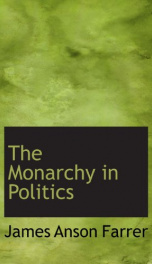military manners and customs

Purchase of this book includes free trial access to www.million-books.com where you can read more than a million books for free. This is an OCR edition with typos. Excerpt from book: that the destructiveness of war, its crimes, and its cruelties, are something new even to a world that cannot lose the recollection of the sack of Magdeburg in 1631, or the devastation of the Palatinate in 1689.' The publicists have but recognised and reflected the floating sentiments of their time, without giving us any definite principle by which to separate the permissible from the non-permissible practice in war. We have seen how much they are at issue on the use of poison. They are equally at issue as to the right of employing assassination ; as to the extent of the legitimate use of fraud; as to the right of beginning a war without declaration; as to the limits of the invader's rights of robbery; as to the right of the invaded to rise against his invader; or as to whether individuals so rising are to be treated as prisoners of war or hanged as assassins. Let us consider what they have done for us with regard to the right of using savages for allies, or with regard to the rights of the conqueror over the town he has taken by assault. The right to use barbarian troops on the Christian battle-field is unanimously denied by all the modern text-writers. Lord Chatham's indignation against England's employment of them against her revolted colonies in America availed as little. Towards the end of the Crimean war Russia prepared to arm some savage races within her empire, and brought Circassians into Hungary in 1848.2 France employed AfricanTurcos both against Austria in 1859 and against Prussia in 1870; and it is within the recollection of the youngest what came of the employment by Turkey of Bashi-Bazouks. Are they likely not to be used in future because Bluntschli, Heffter, or Wheaton prohibits them ? 1 For the character of modern war see the account of the Franco- Germa...
Info about the book
Author:
Series:
Unknown
ASIN:
B00874DWWY
Rating:
4/5 (2)Your rating:
0/5
Languge:
English
Users who have this book
Users who want this book
What readers are saying
What do you think? Write your own comment on this book!
write a commentif you like military manners and customs try:
Do you want to read a book that interests you? It’s EASY!
Create an account and send a request for reading to other users on the Webpage of the book!







